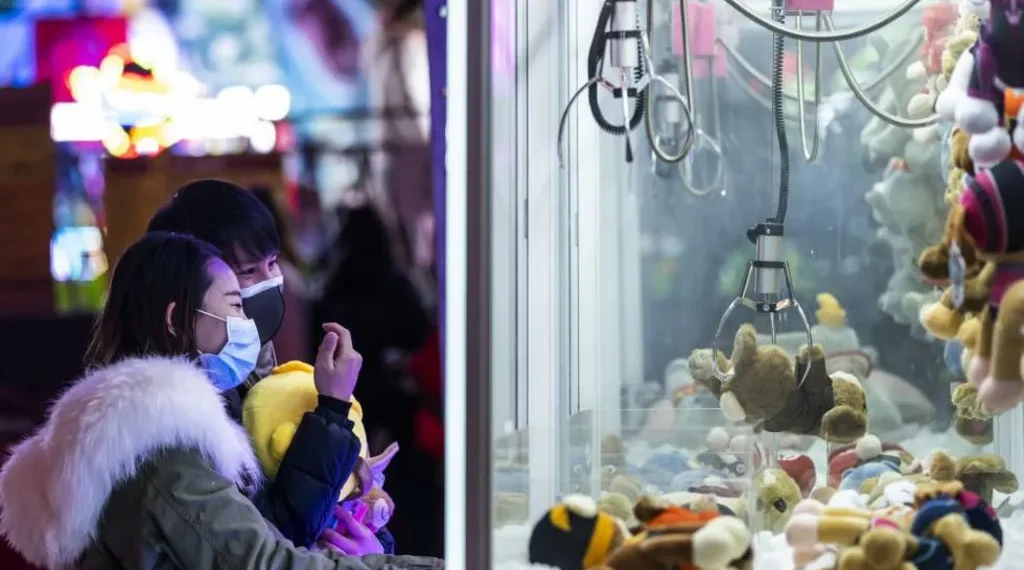Hong Kong Cracks Down on ‘Unfair’ Claw Machines Amid Growing Complaints
Claw machines—those seemingly simple arcade games that offer a chance to win plush toys or gadgets—have long been a source of frustration for many. Players often experience the agony of seeing their desired prize slip from the claw’s grip just as it nears the chute.
In response to rising complaints, Hong Kong’s consumer watchdog, the Consumer Council, announced on Wednesday that it is considering regulations for claw machines. This move follows an increase in the number of complaints filed by disgruntled players.
One notable complaint came from a man who spent HK$500 (around $64 or £50) over 45 minutes trying to win a waffle maker. Instead, he ended up with “nothing more than a few trinkets.” The council called attention to the way claw machines capitalize on players’ enthusiasm, warning people to “spend rationally and be mindful of addiction.” However, it stopped short of outlining specific measures for regulation.
In the first 11 months of this year alone, 42 complaints were made—more than double the 16 complaints in 2023 and nearly six times the number from 2022. The Consumer Council pointed out that claw machines are often rigged to make winning particularly difficult. “Excessive difficulty or unfair settings could aggravate consumers,” the council said.
Gilly Wong Fung-han, the chief executive of the council, stated, “We believe it’s time to review whether we should regulate claw machine businesses.”
However, not everyone agrees with the proposed regulations. Jayden Chen, the founder of a claw machine rental company in Singapore, defended the machines, claiming that the unpredictability is part of the fun. “The players feel the excitement and adrenaline. If they win all the time, there wouldn’t be any reason to play again,” Chen said. “Regulations will kill off the fun element.”
Currently, operators in Hong Kong do not need a license to run claw machines. One of the complaints involved a claw machine that promised “instant prizes” but failed to deliver the waffle maker the man was hoping for. He believed that consumers should be able to select their desired reward. Another complaint involved a woman who noticed that every time her toy moved toward the chute, the claw would slacken, causing it to slip. The machine had a “guaranteed grab” mechanism, which only kicked in after spending at least HK$100 without winning. This practice was described as “dishonest.”
Further reports indicated that some claw machines are programmed to strengthen their grip only after a number of tries or during specific moments. In another example, a customer tried to exchange a HK$100 bill for smaller coins at a claw machine arcade but was only given one HK$5 coin. When he asked for a refund, his request was denied, and he was instead given an equivalent value in play rounds. He called it “forced consumption,” but the operator insisted that no cash refunds would be given due to “operating costs such as bank fees.”
The Consumer Council advised players to carefully consider whether the money spent justifies the prize and suggested video-recording gameplay to document any disputes. Some claw machines are also suspected of being used for gambling purposes, and the council urged consumers to exercise caution when playing.
As complaints continue to grow, it remains to be seen whether Hong Kong will implement new regulations to address the concerns over fairness and transparency in the popular arcade game.
This article was rewritten by JournosNews.com based on verified reporting from trusted sources. The content has been independently reviewed, fact-checked, and edited for accuracy, neutrality, tone, and global readability in accordance with Google News and AdSense standards.
All opinions, quotes, or statements from contributors, experts, or sourced organizations do not necessarily reflect the views of JournosNews.com. JournosNews.com maintains full editorial independence from any external funders, sponsors, or organizations.
Stay informed with JournosNews.com — your trusted source for verified global reporting and in-depth analysis. Follow us on Google News, BlueSky, and X for real-time updates.














